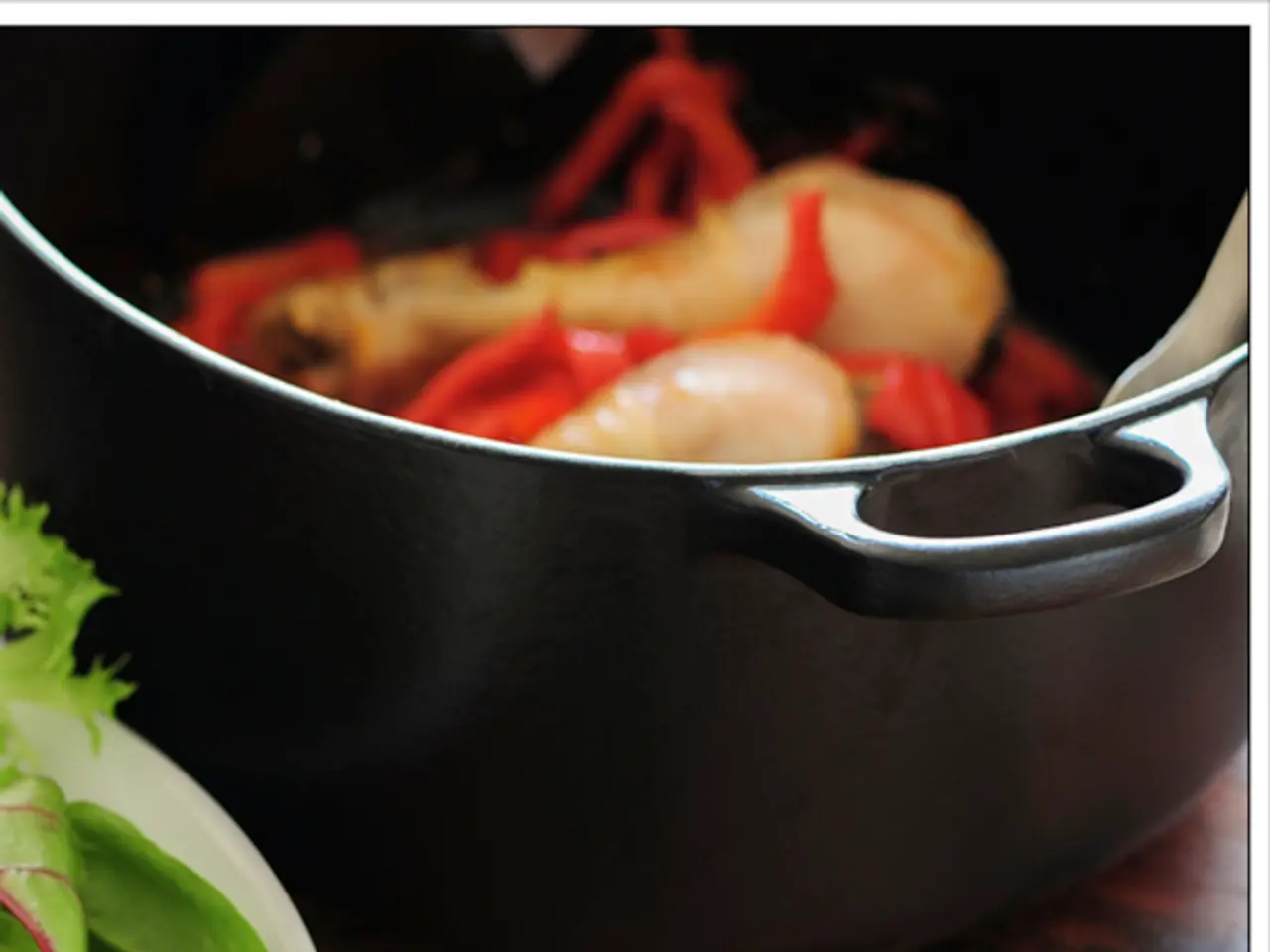Unveiling the Advantages of Consuming Uncooked Sprouts: A Comprehensive Exploration into Nature's Nutrient Powerhouses
In the UK, the Food Standards Agency (FSA) has issued guidelines about sprout consumption, particularly emphasising caution for vulnerable groups. Despite potential risks, raw sprouts offer numerous health benefits when grown, stored, and consumed properly.
Raw sprouts, harvested just days after germination, are concentrated sources of nutrition. They are low in calories, with one cup of alfalfa sprouts containing only 8 calories. These nutritional powerhouses are particularly valuable for those following plant-based diets or anyone looking to boost their nutrient intake without adding significant calories.
Growing your own sprouts at home is simple, cost-effective, and ensures the freshest, safest supply for your kitchen. The basic process involves soaking seeds, draining them, and then rinsing them twice daily until they sprout. Some sprouts are easier and safer to grow at home than others. Alfalfa, mung bean, and broccoli sprouts are excellent choices for beginners.
Properly washing the sprouts before consumption is vital to reduce the risk of bacterial contamination, but washing cannot eliminate all bacteria. It's important to understand and mitigate potential risks associated with consuming raw sprouts, such as bacterial contamination. Pregnant women and immunocompromised individuals should avoid consuming raw sprouts due to the risk of bacterial contamination.
Proper storage and preparation of fresh produce, including sprouts, are crucial for vulnerable groups to prevent cross-contamination and ensure safety. Store fresh sprouts in a clean, airtight container in the refrigerator at about 4°C (39°F). Consume sprouts within 1-2 days after harvesting to minimise bacterial growth.
Raw sprouts are rich in antioxidants, such as glucoraphanin found in broccoli sprouts, which help combat oxidative stress and reduce the risk of chronic diseases. They support digestion by providing dietary fiber and enzymes that aid gut health. Sprouts have a low glycemic impact and contain bioactive compounds that can assist in blood sugar management, potentially improving glucose metabolism.
The antioxidants and anti-inflammatory compounds in sprouts may contribute to cardiovascular health by lowering oxidative stress and improving lipid profiles. Incorporating raw sprouts into meals can enhance digestive health, improve blood sugar control, and contribute to reducing the risk of heart disease.
Research has shown that sprouting can increase vitamin C content by up to 600% in some varieties, while also boosting B-vitamins, protein quality, and mineral absorption. They are packed with fibre that supports healthy digestion, heart health, and weight management.
By following these key points for home growing, storage, and health benefits, you can safely incorporate raw sprouts into a UK diet for optimal nutrition. Use high-quality sprouting seeds, grow sprouts in a clean sprouting jar or tray with proper drainage, rinse seeds thoroughly before soaking them 8-12 hours, then rinse and drain sprouts 2-3 times daily to prevent bacterial growth. Keep sprouts at a temperature between 18-22°C (65-72°F), away from direct sunlight but with some indirect light. Harvest sprouts typically within 3-7 days, when they are crisp and fresh.
[1] Food Standards Agency (FSA). (2021). Sprouts: Advice for consumers. Retrieved from https://www.food.gov.uk/safety-hygiene/sprouts [2] Chung, Y. J., & Kim, J. W. (2015). Sprouting: A review of the nutritional benefits and potential health effects. Critical Reviews in Food Science and Nutrition, 55(11), 1839-1852. doi: 10.1080/10408398.2014.961326
Read also:
- Overweight women undergoing IVF have a 47% higher chance of conceiving naturally post-weight loss
- What temperatures may make walking your canine companion uncomfortable?
- Eye treatments for Drusen: Insights and expansions
- Presidential Candidate Uses Controversial Tactics to Gain Vote, Prompting Outcry From Opponents and Politicians Alike






